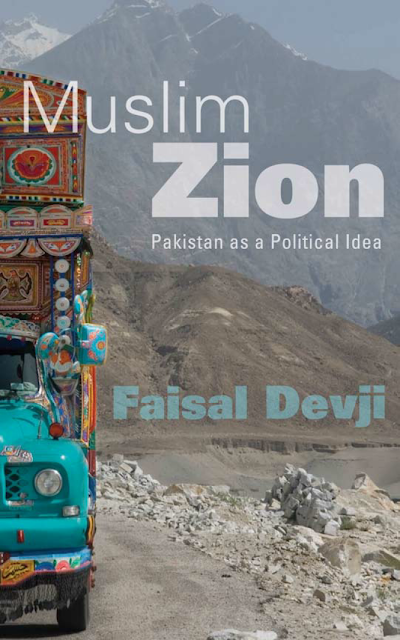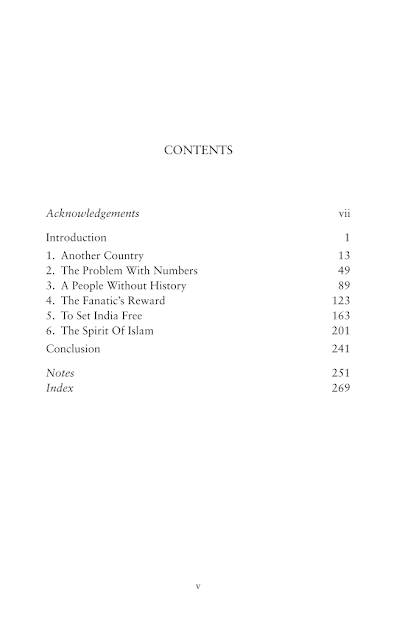Muslim Zion Pakistan as a political idea
Edition: ?
Author: Faisal Devji
Book Publishers Harvard University Press
Publish Date: 2013
Language. English
Category History
Book Code 247
Pages 287
Rs 1200
Book Quality Black Paper
Whatsapp +92312-9775152
E-mail onlinebookshop.pk@gmail.com
About
Pakistan, founded less than a decade after a homeland for India’s Muslims was proposed, is both the embodiment of national ambitions fulfilled and, in the eyes of many observers, a failed state. Muslim Zion cuts to the core of the geopolitical paradoxes entangling Pakistan to argue that India’s rival has never been a nation-state in the conventional sense. Pakistan is instead a distinct type of political geography, ungrounded in the historic connections of lands and peoples, whose context is provided by the settler states of the New World but whose closest ideological parallel is the state of Israel.
A year before the 1948 establishment of Israel, Pakistan was founded on a philosophy that accords with Zionism in surprising ways. Faisal Devji understands Zion as a political form rather than a holy land, one that rejects hereditary linkages between ethnicity and soil in favor of membership based on nothing but an idea of belonging. Like Israel, Pakistan came into being through the migration of a minority population, inhabiting a vast subcontinent, who abandoned old lands in which they feared persecution to settle in a new homeland. Just as Israel is the world’s sole Jewish state, Pakistan is the only country to be established in the name of Islam.
Revealing how Pakistan’s troubled present continues to be shaped by its past, Muslim Zion is a penetrating critique of what comes of founding a country on an unresolved desire both to join and reject the world of modern nation-states.
Copyright © Faisal Devji, 2013
All rights reserved
Printed in the United States of America
First published in the United Kingdom in 2013 by
C. Hurst & Co. (Publishers) Ltd.,
41 Great Russell Street, London, WC1B 3PL
First Harvard University Press edition, 2013
Library of Congress Cataloging-in-Publication Data
Devji, Faisal.
Muslim Zion: Pakistan as a Political Idea / Faisal Devji.
p. cm.
Includes bibliographical references and index.
ISBN 978-0-674-07267-1 (cloth : alk. paper)
1. Islam and politics—Pakistan. 2. Islam and state—Pakistan.
3. Pakistan—Politics and government—20th century.
4. Pakistan—History—20th century. 5. India—History—Partition, 1947.
CONTENTS
Acknowledgements vii
Introduction 1
1. Another Country 13
2. The Problem With Numbers 49
3. A People Without History 89
4. The Fanatic’s Reward 123
5. To Set India Free 163
6. The Spirit Of Islam 201
Conclusion 241
Notes 251
Index 269
ACKNOWLEDGEMENTS
The idea for this book was prompted by an invitation to deliver
the Kingsley Martin Memorial Lecture at the University of Cam-
bridge in 2009. The project I sketched out in my lecture was
subsequently elaborated over many conversations with Shruti
Kapila, as well as receiving much productive commentary in
workshops and talks organized by Chris Bayly, Sunil Khilnani,
Uday Mehta, Henning Trüper, Ravinder Kaur and Thomas Blom
Hansen. Some of the book’s themes possessed an earlier incar-
nation at Yale, as a paper on Jinnah inspired by the late Carol
Breckenridge, which received the careful consideration of Arjun
Appadurai, Achille Mbembe and Vyjayanthi Rao, to all of
whom I’m very grateful. My thanks also go to those who have
generously read and commented on draft chapters. In addition
to the two anonymous press reviewers, these include Derek
Penslar, Neguin Yavari, C. M. Naim, Ahmed Zildzic and Kelly
Grotke. As always, Rachel and Michael Dwyer as well as Chris-
tophe Carvalho have made my task as a writer easier and more
pleasurable.
INTRODUCTION
In an early essay called “Is Judaea, then, the Teutons’ Father-
land?” a great philosopher of the modern state wondered if his
homeland would ever give rise to a nation. Reflecting upon the
patchwork quilt of principalities that was Germany in his day,
G. W. F. Hegel noted that its history seemed to provide only
fragments for the building of a collective imagination:
Thus we are without any religious imagery which is homegrown or
linked with our history, and we are without any political ima gery
whatever; all that we have is the remains of an imagery of our own,
lurking amid the common people under the name of superstition. As a
belief in ghosts it retains the memory of a hill where knights once did
their mischief or a house where monks and nuns walked or where a
supposedly faithless trustee or neighbor has still failed to find rest in
the grave. As a product of fancy, drawing nothing from history, it
befools weak or evil men with the possibility of witchcraft. 1
Instead of turning to their own country and its past, suggested
Hegel, Germans were only able to imagine a homeland in the
landscape of biblical Judaea, whose image they had inherited
from the centuries of Christianity that preceded the politics of
nationalism:
Christianity has emptied Valhalla, felled the sacred groves, extirpated
the national imagery as a shameful superstition, as a devilish poison,
and given us instead the imagery of a nation whose climate, laws, cul-
ture, and interests are strange to us and whose history has no connec-













No comments:
Post a Comment